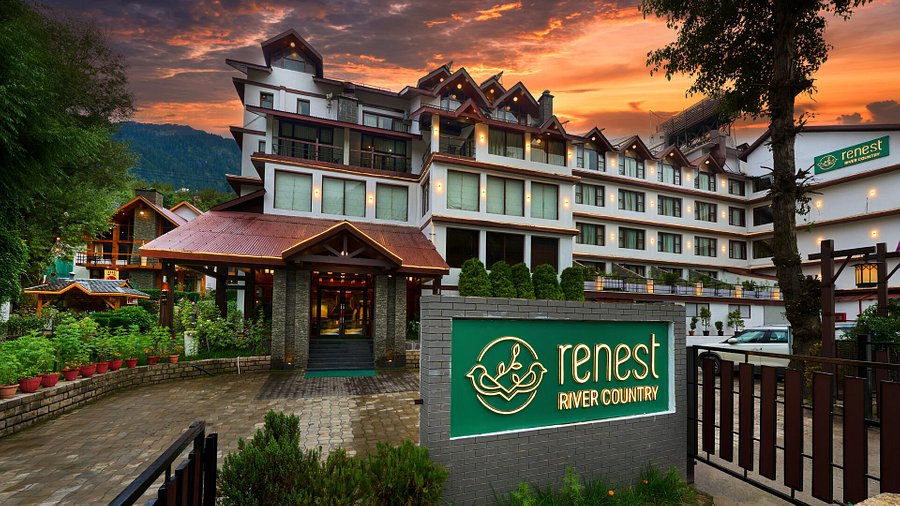 Schema + Rich Snippets – Dominate Search with Visual Results!
Schema + Rich Snippets – Dominate Search with Visual Results!
How De-Addiction Centers Work
Written by Advin » Updated on: June 17th, 2025

De-addiction centers like Maanavta.in follow a structured and phased approach to treatment, ensuring that individuals receive the necessary care and support to overcome addiction. Here's how the process typically works:
1. Initial Assessment and Evaluation
The first step in the recovery process at a de-addiction center is a comprehensive assessment of the individual’s physical and mental health. This evaluation includes:
Medical History: To understand any underlying health conditions that may affect the treatment plan.
Addiction History: To assess the severity of addiction and the substances involved.
Psychological Evaluation: To identify any co-occurring mental health conditions like depression or anxiety that need attention during recovery.
This information helps the medical professionals at the center to develop a personalized treatment plan tailored to the individual’s specific needs.
2. Detoxification and Medical Supervision
After the assessment, the next step is detoxification—the process of removing harmful substances from the body. This stage must be done under medical supervision to ensure the individual’s safety. Withdrawal symptoms can be severe and potentially life-threatening, so medical professionals are available to:
Monitor vital signs.
Administer medications to ease withdrawal symptoms.
Provide emotional and psychological support.
Detoxification is often the hardest part of recovery, but it is crucial for clearing the body of substances and preparing the individual for therapy and rehabilitation.
3. Therapeutic Interventions
Once detoxification is complete, therapy begins. This is the core phase of the recovery process and involves various types of therapy to address the psychological aspects of addiction.
Individual Therapy: One-on-one sessions with a licensed therapist help individuals explore the root causes of their addiction, past trauma, and triggers. Cognitive Behavioral Therapy (CBT) and Motivational Interviewing (MI) are commonly used techniques to help individuals change their behavior and mindset.
Group Therapy: Group therapy sessions provide a platform for individuals to share their experiences, challenges, and successes in a supportive environment. It fosters a sense of community and allows participants to learn from each other.
Family Therapy: Addiction impacts not only the individual but also their loved ones. Family therapy helps rebuild relationships, improve communication, and address any family dynamics that may have contributed to the addiction.
Holistic Therapies: Incorporating approaches like yoga, meditation, and art therapy can help individuals reconnect with their inner selves, reduce stress, and improve emotional well-being. These practices complement traditional therapies by promoting overall mental health.
4. Relapse Prevention and Aftercare
Recovery doesn’t end when an individual completes their treatment at the de-addiction center. To ensure long-term sobriety and prevent relapse, aftercare support is essential. De-addiction centers offer:
Continued Counseling: Regular check-ins with therapists help individuals stay on track and address any challenges they may face after leaving the center.
Support Groups: Many centers facilitate ongoing group therapy and support groups where individuals can continue to connect with peers who understand their struggles.
Sober Living Facilities: Some individuals may benefit from staying in a sober living environment, where they can live with others in recovery while gradually reintegrating into society.
Relapse Prevention Strategies: These include identifying triggers, developing coping mechanisms, and creating a structured plan for managing cravings and stress.
5. Holistic and Integrative Approaches
Some de-addiction centers go beyond conventional therapy and take a more holistic approach to treatment. These may include:
Nutritional Support: A healthy diet plays a vital role in physical and mental recovery. Nutritionists may help create a balanced meal plan to support healing.
Physical Fitness: Regular exercise is encouraged as it releases endorphins, which can improve mood and reduce stress.
Mindfulness and Meditation: These practices help individuals develop emotional regulation skills and increase self-awareness.
6. Educational Programs
Many de-addiction centers offer educational programs to help individuals understand addiction better. These programs may include:
Addiction Education: Understanding the science behind addiction and its effects on the brain and body.
Life Skills Training: Learning essential life skills, such as stress management, decision-making, and healthy coping mechanisms, to help individuals thrive after recovery.
7. Reintegration into Society
Successfully completing a de-addiction program doesn’t just mean overcoming addiction—it also involves reintegrating into society and rebuilding one's life. De-addiction centers support this transition by:
Career Counseling: Helping individuals find meaningful employment or pursue new career goals.
Social Skills Training: Rebuilding social networks and relationships is vital for maintaining sobriety. Training in effective communication, setting boundaries, and building healthy friendships is often part of the recovery process.
Conclusion
De-addiction centers like Maanavta.in offer a comprehensive, compassionate, and structured approach to recovery. From detoxification and therapy to aftercare support and holistic healing, these centers provide everything needed for individuals to break free from addiction and start a new life. With the right support, recovery is not only possible but sustainable. If you or a loved one is struggling with substance abuse, a de-addiction center in Dehradun could be the first step toward lasting change and a brighter future.
(All Information Collect From Search Engine)
Note: IndiBlogHub features both user-submitted and editorial content. We do not verify third-party contributions. Read our Disclaimer and Privacy Policyfor details.
Copyright © 2019-2025 IndiBlogHub.com. All rights reserved. Hosted on DigitalOcean for fast, reliable performance.










